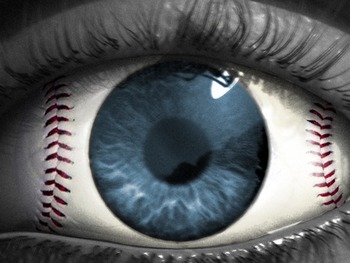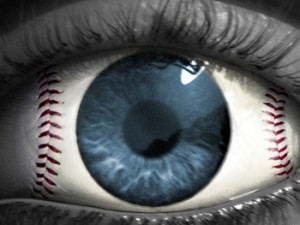So, I saw this patient last week who was blind in his left eye. Other than a congenital form of blindness in that eye, his ocular and visual health were essentially normal. He asked me why I prescribed glasses for him, and it led to a great and meaningful discussion regarding eye safety. First of all, I prescribed glasses with polycarbonate lenses to protect his other eye (the one that sees normally). I typically put this to patients as plainly as I can: “You’ve already used up your spare eye, and we have to do everything we can to keep your good eye healthy”. Polycarbonate lenses are what safety glasses have for lenses, but you don’t have to get them in a “safety” frame or some big eye shield — those of you who remember Horace Grant playing for the Bulls know what I’m talking about. Actually, a lot of nearsighted people you see about have polycarbonate lenses in their everyday “dress” glasses not for safety, but because these lenses are actually thinner and lighter than many other types of plastic lenses. So called “rec specs” are also made of polycarbonate and should be used much more frequently than they are. I can tell you that, first and foremost, racquetball injuries are by far the most damaging to the tissues of the eye. Baseball injuries are a close second, and, due to the size, density, and velocity of a baseball, the bones around the eye are often fractured, as well. Now, I’m not saying that it’ll tickle if a baseball or racquetball (or whatever) hits you in your rec specs, but it might just be the difference between a nasty shiner and a life-changing event. So, with that in mind, “play ball”!


